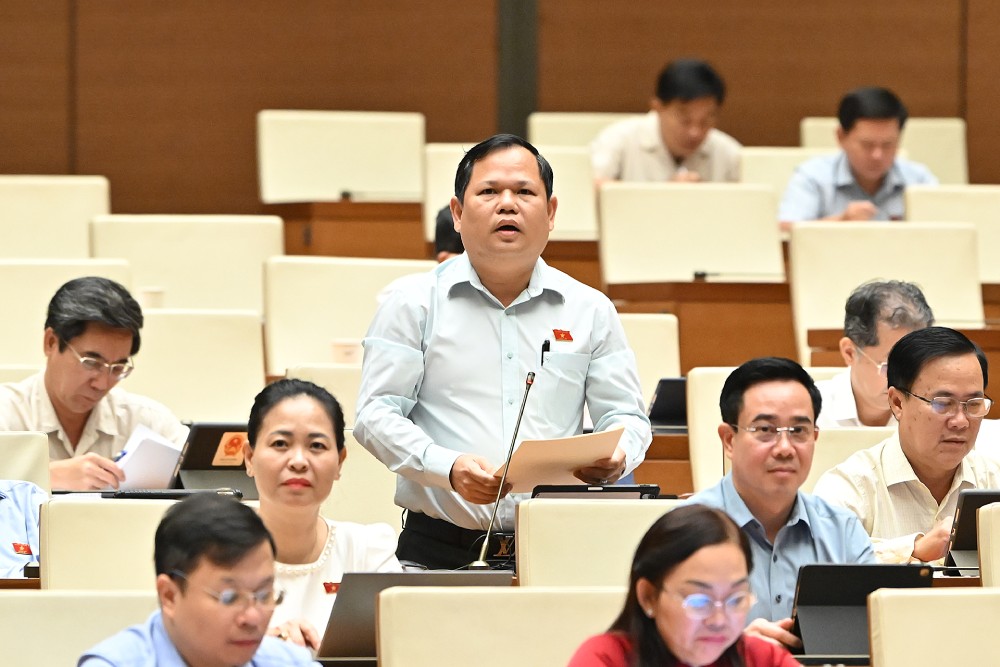On the morning of May 17, the National Assembly discussed in the hall the draft Law amending and supplementing a number of articles of the Law on Product and Goods Quality.
Delegate Trinh Thi Tu Anh (Lam Dong delegation) was concerned that the removal of the ministerial inspectorate is leading to gaps in controlling the quality of goods, products produced, imported, and circulating in the group of inter-sectoral products such as functional foods and children's items.
From the above reality, the delegate proposed to add a regulation to establish the Ministry of Science and Technology as the presiding unit, unify national goods quality inspection activities, and connect inspection data between ministries and branches.
The delegate also proposed to clarify the coordination mechanism between the Government Inspectorate and market management agencies after eliminating specialized inspections at ministries.
Delegates also emphasized the enhancement of the local role. The draft only stipulates the inspection responsibility of the specialized agency of the provincial People's Committee, not mentioning the commune and ward level and updating the model of the local government 2 levels.
Because in reality, counterfeit goods, food, cosmetics, clothes... floating at rural unit markets are very popular. However, the provincial inspection force could not control in time, the commune and ward levels detected it but could not handle it because they did not have enough authority.
Therefore, the delegate proposed to add a regulation allowing the People's Committees at the commune level to proactively organize inspections of goods circulating on the market. The study allows localities such as People's Committees of communes and wards to perform a number of basic functions such as making records, warning of goods violating quality...
The delegate also proposed raising the penalty framework for the production and distribution of counterfeit and poor quality goods. Add to the draft law on administrative recidivism many times to increase the penalty for suspension of operations, expand the responsibility of the transport unit, and show signs of helping.
Regarding the classification of goods according to the risk level (low, medium, high), delegate Nguyen Duy Thanh (Ca Mau Delegation) commented that this is the basis for manufacturers to choose appropriate product quality and safety control measures and the state to implement a compatible inspection regime (inspection frequency), mainly in the "post-inspection" stage.
However, the delegate said that the draft Law focuses too much on the "pre-inspection" stage by announcing the regulations for each product group, the controversial issue is that it is not suitable and the "post-inspection" measures are taken lightly.
The new post-inspection work is an important measure of the state to ensure that only quality and safe products are allowed to be circulated, said the delegate.

Sharing the same interest in classifying goods according to risk levels, delegate Tran Thi Nhi Ha (Hanoi Delegation) suggested that it is necessary to issue a list of goods with medium and high risk levels immediately after the Law takes effect, ensuring consistency and feasibility.
The delegate said that all regulations on inspection, examination and handling of violations have not been amended to match the urgent requirements of reality with a proactive, effective and feasible "post-inspection" mechanism.
postspective work is still formal and passive; there is a lack of a mechanism for risk analysis, data connection, monitoring and warning; there is no mechanism for mobilizing socialization to this work, said the delegate.










